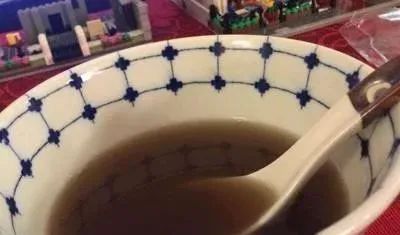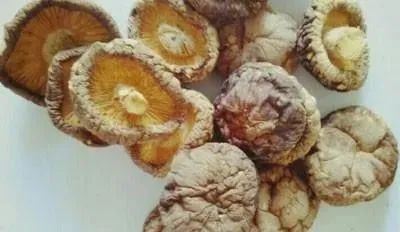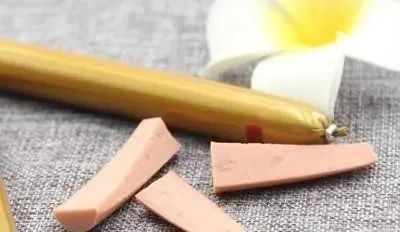Qi deficiency is a common condition mentioned in Traditional Chinese Medicine (TCM). Individuals with Qi deficiency often experience symptoms such as excessive sweating, fatigue in the limbs, and poor appetite. Over time, this can severely affect the normal functioning of the body’s organs. So, what are the symptoms of Qi deficiency? What should one do about Qi deficiency? What foods are beneficial for Qi deficiency? In the following text, I will share these insights with you.
What are the symptoms of Qi deficiency?1. Lung Qi DeficiencyThe lungs govern Qi, control respiration, and connect with the skin and hair, regulating the water pathways. When Lung Qi is deficient, its functions of dispersing and descending, regulating respiration, managing fluid metabolism, and resisting external pathogens weaken, leading to symptoms such as shortness of breath, spontaneous sweating, weak voice, cough, asthma, chest tightness, susceptibility to colds, and even edema and difficulty urinating. 2. Kidney Qi DeficiencyThe kidneys reside in the lower back, store essence, and control the opening and closing of the two yin. The essence nourishes the five organs and supports the brain. When Kidney Qi is deficient, it fails to nourish, resulting in symptoms such as fatigue, dizziness, forgetfulness, weakness in the lower back and knees, frequent clear urination, thin white discharge, pale tongue, and weak pulse. If the kidneys cannot hold Qi, breathing becomes shallow and rapid.3. Spleen Qi DeficiencyThe spleen is located in the middle jiao, governs transformation and transportation, controls the ascending of clear Qi, and regulates blood circulation. When Spleen Qi is weak, it cannot transform food and fluids effectively, leading to insufficient production of Qi and blood. Symptoms include reduced appetite, discomfort in the stomach after eating, fatigue, weight loss, loose stools, pale yellow complexion, pale tongue with thin coating, and weak pulse.4. Heart Qi DeficiencyThe heart governs blood vessels and houses the spirit. When Heart Qi is deficient, it cannot propel blood circulation or nourish the spirit, leading to palpitations, shortness of breath, excessive sweating, exacerbated fatigue, pale tongue, and weak pulse.5. Yang (Qi) DeficiencyQi deficiency may present with a pale complexion, dizziness, shortness of breath, fatigue, and in severe cases, fainting. Yang deficiency, in addition to Qi deficiency symptoms, also includes cold intolerance, cold limbs, spontaneous sweating, a deep, slow, or weak pulse, and a pale, swollen tongue with white coating.What should one do about Qi deficiency?1. Herbal MedicineTCM has a long history of regulating Qi deficiency. It is advisable to use herbs with good Qi-tonifying effects such as: Ren Shen (Ginseng), Shan Yao (Chinese Yam), Bai Zhu (White Atractylodes), Ling Zhi (Reishi Mushroom), Da Zao (Jujube), Wu Wei Zi (Schisandra), Xiyang Shen (American Ginseng), Dang Shen (Codonopsis), and Jiu Gan Cao (Honey-fried Licorice). In addition to these, some Qi-tonifying Chinese patent medicines can be chosen. However, patients with hypertension should be cautious, as herbs like Ginseng, American Ginseng, and Schisandra are not suitable for them, so Qi tonification should be conducted under the guidance of a qualified practitioner.
2. Kidney Qi DeficiencyThe kidneys reside in the lower back, store essence, and control the opening and closing of the two yin. The essence nourishes the five organs and supports the brain. When Kidney Qi is deficient, it fails to nourish, resulting in symptoms such as fatigue, dizziness, forgetfulness, weakness in the lower back and knees, frequent clear urination, thin white discharge, pale tongue, and weak pulse. If the kidneys cannot hold Qi, breathing becomes shallow and rapid.3. Spleen Qi DeficiencyThe spleen is located in the middle jiao, governs transformation and transportation, controls the ascending of clear Qi, and regulates blood circulation. When Spleen Qi is weak, it cannot transform food and fluids effectively, leading to insufficient production of Qi and blood. Symptoms include reduced appetite, discomfort in the stomach after eating, fatigue, weight loss, loose stools, pale yellow complexion, pale tongue with thin coating, and weak pulse.4. Heart Qi DeficiencyThe heart governs blood vessels and houses the spirit. When Heart Qi is deficient, it cannot propel blood circulation or nourish the spirit, leading to palpitations, shortness of breath, excessive sweating, exacerbated fatigue, pale tongue, and weak pulse.5. Yang (Qi) DeficiencyQi deficiency may present with a pale complexion, dizziness, shortness of breath, fatigue, and in severe cases, fainting. Yang deficiency, in addition to Qi deficiency symptoms, also includes cold intolerance, cold limbs, spontaneous sweating, a deep, slow, or weak pulse, and a pale, swollen tongue with white coating.What should one do about Qi deficiency?1. Herbal MedicineTCM has a long history of regulating Qi deficiency. It is advisable to use herbs with good Qi-tonifying effects such as: Ren Shen (Ginseng), Shan Yao (Chinese Yam), Bai Zhu (White Atractylodes), Ling Zhi (Reishi Mushroom), Da Zao (Jujube), Wu Wei Zi (Schisandra), Xiyang Shen (American Ginseng), Dang Shen (Codonopsis), and Jiu Gan Cao (Honey-fried Licorice). In addition to these, some Qi-tonifying Chinese patent medicines can be chosen. However, patients with hypertension should be cautious, as herbs like Ginseng, American Ginseng, and Schisandra are not suitable for them, so Qi tonification should be conducted under the guidance of a qualified practitioner. 2. ExerciseWomen experiencing Qi deficiency symptoms should persist in exercising to enhance their physical fitness. They can choose suitable forms of exercise based on their condition. Avoid overly strenuous activities, as they may lead to discomfort. Traditional fitness methods such as Tai Chi and Qigong are gentle exercises that strengthen the body while calming the mind.3. DietIn terms of diet, there are many foods that can tonify Qi, commonly including Xi Mi (Millet), Nuomi (Glutinous Rice), Carrots, Sweet Potatoes, Rabbit Meat, Tofu, Potatoes, Pork Stomach, Eggs, Shiitake Mushrooms, etc. These foods have excellent effects on strengthening the spleen and tonifying Qi. Additionally, we can consume some Qi-tonifying medicinal dishes. Food is essential for life, and those with Qi deficiency should be particularly aware of this.What foods are good for Qi deficiency?1. MilletMillet is a common staple food with a long history of consumption in China. It is recorded in many classic TCM texts as having excellent nourishing effects on the body and kidneys. Consistently consuming millet during periods of weakness can effectively nourish the Dan Tian (Lower Dantian) and replenish the body’s deficiencies, promoting recovery.2. Red DatesRed dates are a renowned blood-nourishing food and also help to regulate the spleen and stomach, calming the spirit. They are particularly beneficial for those with weak spleen and stomach and Qi deficiency.3. Chinese YamChinese yam is both a food and a medicinal herb. In TCM, it is believed to tonify Qi, nourish the kidneys, and support Yin, making it suitable for those with weak spleen and stomach or diarrhea.4. Shiitake MushroomsShiitake mushrooms can regulate the stomach and provide nutrition, especially for those who are underweight or have unusual bowel movements. However, it is important to note that shiitake mushrooms should not be consumed in excess, as they may cause gastrointestinal bloating.
2. ExerciseWomen experiencing Qi deficiency symptoms should persist in exercising to enhance their physical fitness. They can choose suitable forms of exercise based on their condition. Avoid overly strenuous activities, as they may lead to discomfort. Traditional fitness methods such as Tai Chi and Qigong are gentle exercises that strengthen the body while calming the mind.3. DietIn terms of diet, there are many foods that can tonify Qi, commonly including Xi Mi (Millet), Nuomi (Glutinous Rice), Carrots, Sweet Potatoes, Rabbit Meat, Tofu, Potatoes, Pork Stomach, Eggs, Shiitake Mushrooms, etc. These foods have excellent effects on strengthening the spleen and tonifying Qi. Additionally, we can consume some Qi-tonifying medicinal dishes. Food is essential for life, and those with Qi deficiency should be particularly aware of this.What foods are good for Qi deficiency?1. MilletMillet is a common staple food with a long history of consumption in China. It is recorded in many classic TCM texts as having excellent nourishing effects on the body and kidneys. Consistently consuming millet during periods of weakness can effectively nourish the Dan Tian (Lower Dantian) and replenish the body’s deficiencies, promoting recovery.2. Red DatesRed dates are a renowned blood-nourishing food and also help to regulate the spleen and stomach, calming the spirit. They are particularly beneficial for those with weak spleen and stomach and Qi deficiency.3. Chinese YamChinese yam is both a food and a medicinal herb. In TCM, it is believed to tonify Qi, nourish the kidneys, and support Yin, making it suitable for those with weak spleen and stomach or diarrhea.4. Shiitake MushroomsShiitake mushrooms can regulate the stomach and provide nutrition, especially for those who are underweight or have unusual bowel movements. However, it is important to note that shiitake mushrooms should not be consumed in excess, as they may cause gastrointestinal bloating. 5. ClamsClams have excellent nourishing effects on essence and blood, as well as on the liver and kidneys, and their sweet taste is widely appreciated. Additionally, clams are cooling in nature, so they can help reduce heat in cases of fire or kidney deficiency with heat. It is recommended for individuals who are physically weak and frequently experience dizziness, night sweats, lower back pain, and poor kidney function to regularly consume clams.What foods are good for Qi deficiency?1. Ham and Tofu SoupIngredients: 250g tofu, 1 egg, 30g ham, lard, pork bone broth, cooking wine, water bean flour, fine salt, chopped green onions, and MSG to taste.Method: Beat the egg in a bowl, add an appropriate amount of water bean flour and mix well. Cut the ham into small pieces and the tofu into small triangles, place them in a greased plate, pour the egg mixture over, top with ham pieces, and steam until cooked. Boil the pork bone broth in a pot, add the steamed tofu, bring to a boil again, and season. Consume twice a day.
5. ClamsClams have excellent nourishing effects on essence and blood, as well as on the liver and kidneys, and their sweet taste is widely appreciated. Additionally, clams are cooling in nature, so they can help reduce heat in cases of fire or kidney deficiency with heat. It is recommended for individuals who are physically weak and frequently experience dizziness, night sweats, lower back pain, and poor kidney function to regularly consume clams.What foods are good for Qi deficiency?1. Ham and Tofu SoupIngredients: 250g tofu, 1 egg, 30g ham, lard, pork bone broth, cooking wine, water bean flour, fine salt, chopped green onions, and MSG to taste.Method: Beat the egg in a bowl, add an appropriate amount of water bean flour and mix well. Cut the ham into small pieces and the tofu into small triangles, place them in a greased plate, pour the egg mixture over, top with ham pieces, and steam until cooked. Boil the pork bone broth in a pot, add the steamed tofu, bring to a boil again, and season. Consume twice a day. 2. Crucian Carp SoupIngredients: Crucian carp, yellow beans, black beans, green peas.Method: Soak the three types of beans in clean water for six hours, then blend them into soy milk, removing the residue. Clean the crucian carp and blanch it in boiling water with a bit of cooking wine and salt to remove the fishy smell and enhance flavor. In a hot pan, sauté ginger, garlic, and green onions until fragrant, then add the fish, pour in the soy milk and water; boil on high heat for half an hour, then simmer for twenty minutes before serving.Conclusion: The symptoms of Qi deficiency are complex and can manifest differently in various parts of the body. However, common symptoms include fatigue and weakness. Therefore, we should not overlook these signs. In daily life, we can choose TCM regulation, engage in regular exercise, and maintain a balanced diet, believing that tonifying Qi will yield significant results.
2. Crucian Carp SoupIngredients: Crucian carp, yellow beans, black beans, green peas.Method: Soak the three types of beans in clean water for six hours, then blend them into soy milk, removing the residue. Clean the crucian carp and blanch it in boiling water with a bit of cooking wine and salt to remove the fishy smell and enhance flavor. In a hot pan, sauté ginger, garlic, and green onions until fragrant, then add the fish, pour in the soy milk and water; boil on high heat for half an hour, then simmer for twenty minutes before serving.Conclusion: The symptoms of Qi deficiency are complex and can manifest differently in various parts of the body. However, common symptoms include fatigue and weakness. Therefore, we should not overlook these signs. In daily life, we can choose TCM regulation, engage in regular exercise, and maintain a balanced diet, believing that tonifying Qi will yield significant results.

